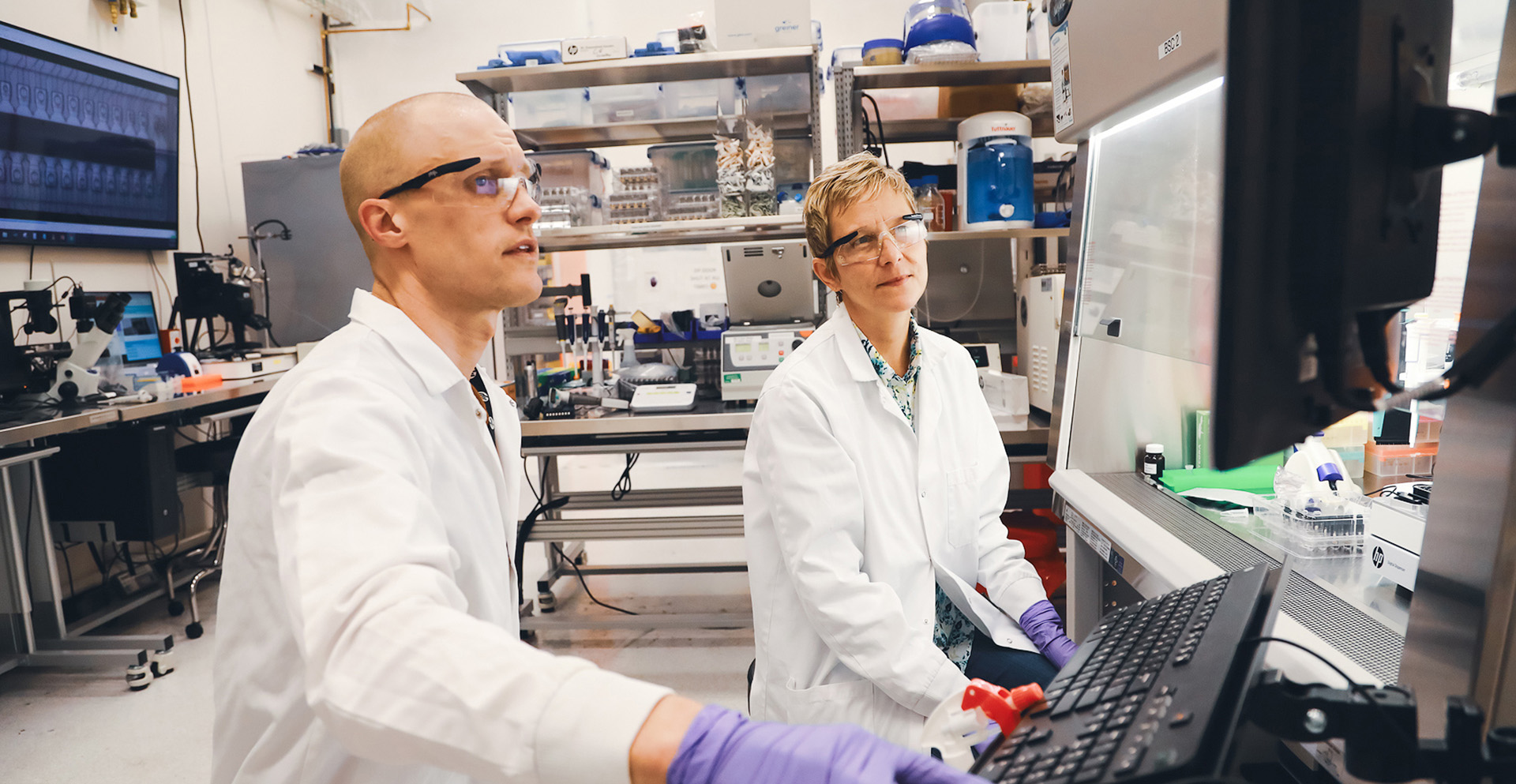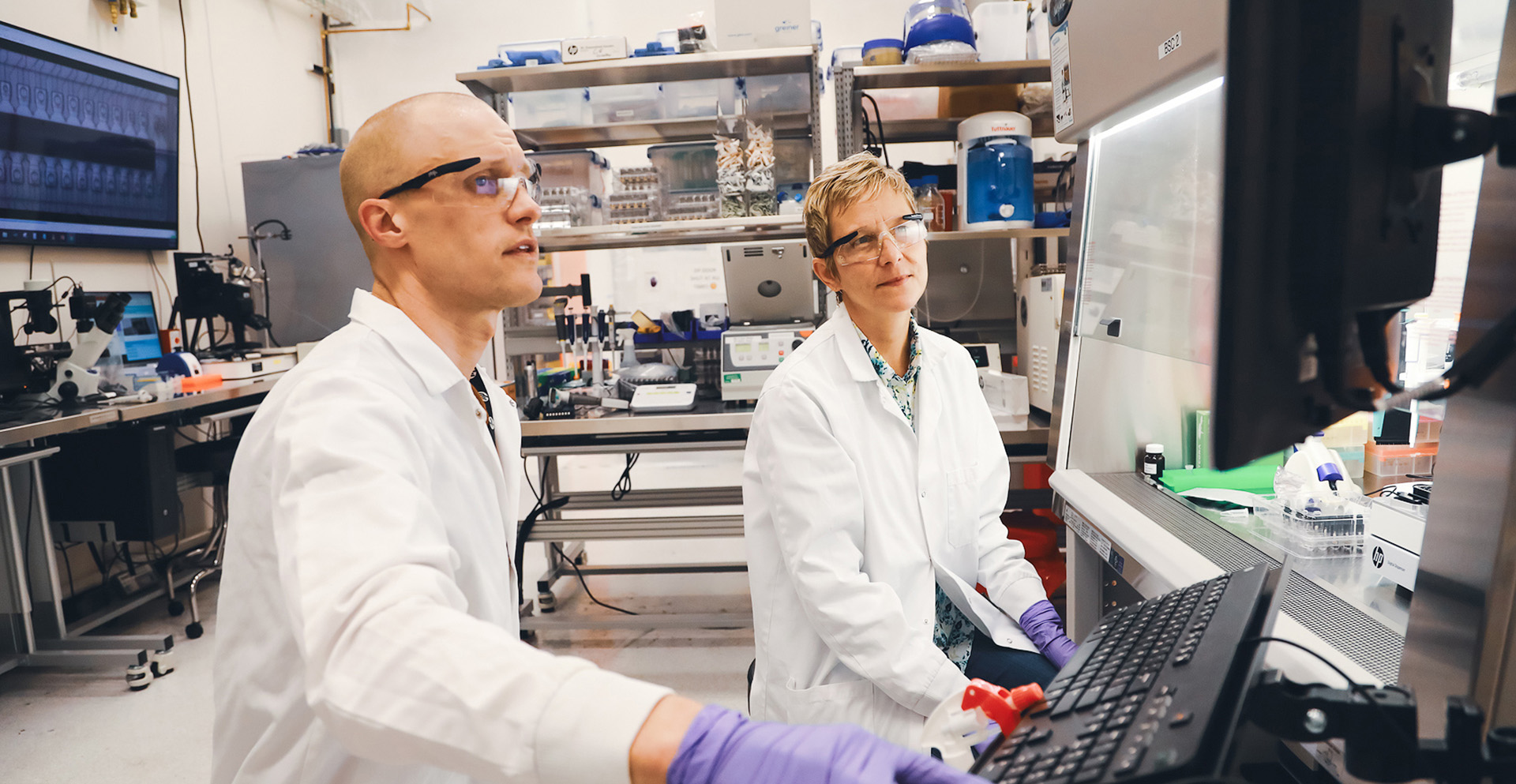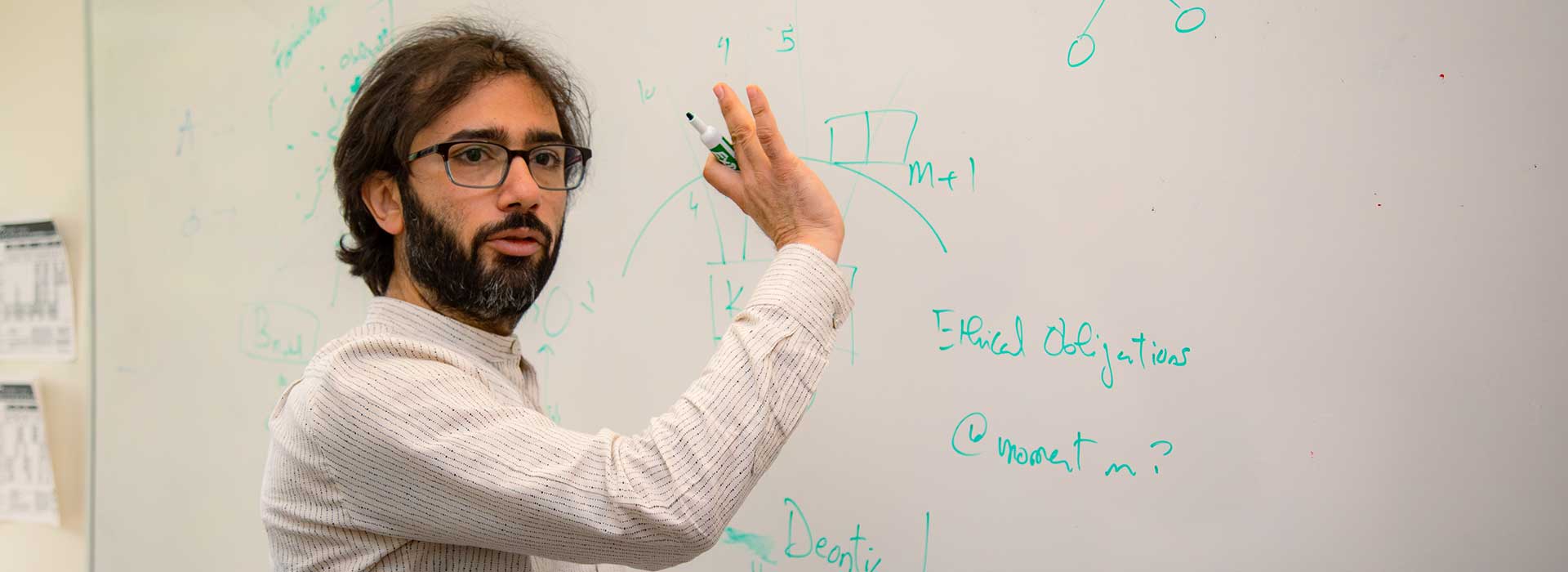Electrical and Computer Engineering
Turn on, Tune in, Level up

Enable technology that drives crucial industries
Electrical and Computer Engineering is a diverse discipline encompassing computer and information systems, nanoelectronics, telecommunications and wireless technologies, lasers, robotics, display technologies, circuit design, energy systems, and more.
Through strategic partnerships with global companies with deep roots in Oregon's fertile innovation landscape, like HP and Intel, Oregon State stands at the nexus of innovation and workforce development.
Our state-of-the-art facilities include an integrated circuit development and design lab, a materials synthesis and characterization center, and coming in 2026, the Jen-Hsun Huang and Lori Mills Huang Collaborative Innovation Complex.
Degree Types
Locations
Corvallis
Our Faculty
Explore our faculty's expertise and research.
Contact our industry relations team to discuss partnerships and other opportunities.
Faculty Research Areas
We can take an idea from design to device with our broad expertise, outstanding facilities, and industry connections.
Artificial Intelligence and Robotics
Theory, algorithms, and systems for making decisions in complex environments
Communications and Signal Processing
Information representation, transmission, processing, and understanding
Cybersecurity
Tools and techniques to protect data and infrastructure against cyber attacks
Data Science and Engineering
Development of technology, processes, and software to access and utilize data
Electronic Materials and Devices
Multi-disciplinary approach to developing new solutions for electronics
Health Engineering
Systems, devices, and data analysis for health related applications
Integrated Electronics
Electronics innovation in computation, communication, and imaging
Networking and Computing Systems
Modeling, design, and analysis of networking and computer systems
A Full Spectrum of Experience

Materials Synthesis and Characterization Facility
A hub for materials and device development including thin-film deposition, device fabrication, and materials analysis

Founder and CEO of NVIDIA gives back to OSU
Electrical engineering alumnus Jensen Huang, has donated millions to support research and education.
Degree Types
Locations
Corvallis
Our Faculty
Explore our faculty's expertise and research.
Get in Touch
Partnerships
Contact our industry relations team to discuss partnerships and other opportunities.
Partnerships expand student opportunities

OSU-led regional technology consortium builds career pathways
The CorMic Tech Hub is promoting a diverse workforce for emerging technologies through innovative academic programs.
Semiconductor education boosted by partnerships
OSU collaborates with top universities to develop courses that prepare students for the semiconductor industry.

